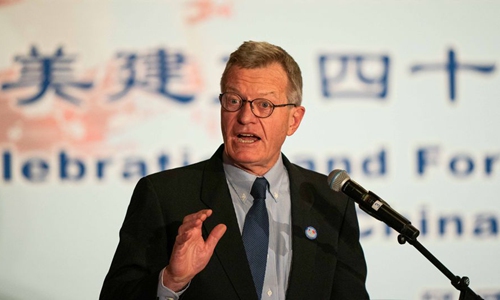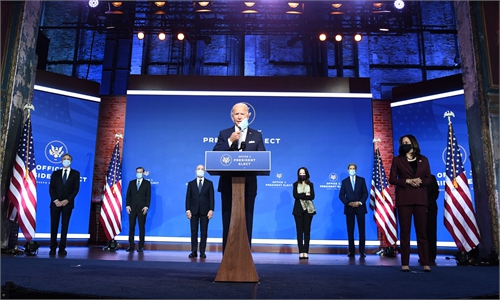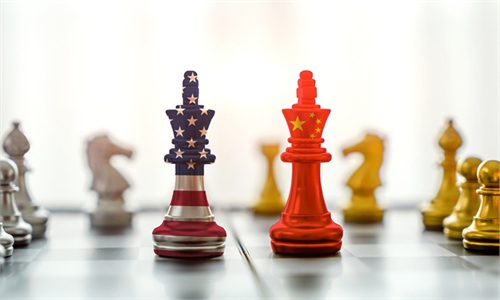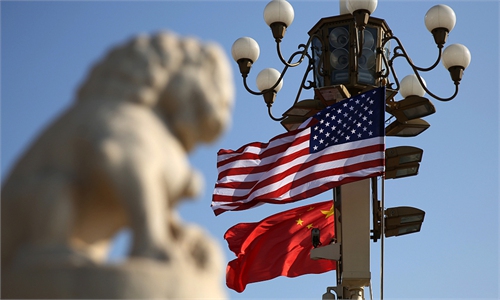
Photo taken on Jan. 20, 2019, shows former U.S. ambassador to China Max Baucus delivering a speech during a celebration marking the 40th anniversary of the establishment of China-U.S. diplomatic relations, in Los Angeles, the United States. (Xinhua/Qian Weizhong)
One day after China formally acknowledged Joe Biden's win in the US presidential election, the American Chamber of Commerce in China (AmCham China) uploaded an earlier interview with former US Ambassador to China Max Baucus that shed light on what China-US relations will be like under President Biden.
Chinese President Xi Jinping on Wednesday congratulated Joe Biden on his win in the US presidential election.
"We hope the two sides will uphold the spirit of non-conflict, non-confrontation, mutual respect and win-win cooperation, focus on cooperation, manage differences, and promote the healthy and stable development of China-US ties," Xi said.
In its Thursday update on its WeChat public account, the leading US business group in China uploaded a transcript of a September interview between Baucus and Alan Beebe, president of AmCham China.
During the interview, Baucus, a Democrat, predicted the US-China relationship "is going to stabilize a little bit because it has to" not too far down the road, but also said "things are not going to change a lot" even under a Biden presidency, which intends to work with China on areas such as the WTO and the Paris Accord.
"Because the tectonic plates are shifting, with a rising power and an established power, it's inevitable that there will be tension between the two largest economies," Baucus said.
"China will keep growing. They'll keep rolling along until they're checked, either internally or externally," Baucus said.
However, the former US Ambassador during 2014-17 who is currently the chairman of the US Senate Committee on Finance, also said that under Biden, the US will interact with China in a way where competition is respectful.
Some Chinese experts on strategic politics said the rationality of the Biden administration could help China and the US break out of the current dilemma, which has brought bilateral ties to "a freezing point."



